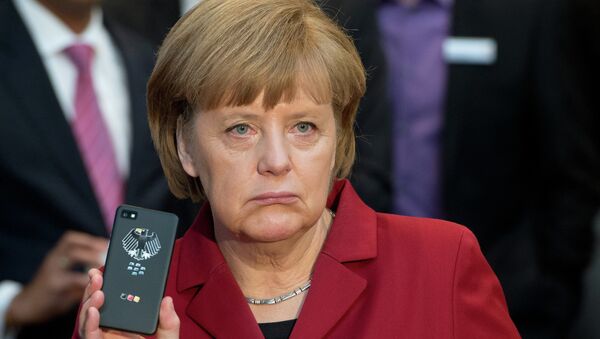Merkel has called for a third-party investigator to inspect a list of targets that German intelligence (BND) tracked on behalf of the US National Security Agency (NSA). Merkel has come in for criticism ever since the news of German-US co-operation in spying on European companies and officials broke.
The #Stasi of Eastern Germany, asserted that they needed to know everything about everybody. Sound familiar? #NSA #GCHQ
— Mark Spindloe (@101metro) June 19, 2015
The matter is under investigation by the German Bundestag, but her suggestion that an independent investigator be appointed to lead the investigation is being taken as a sign that she is keen to pass the whole affair over to another body to kick the issue into the political long grass.
#Germany Investigation of #NSA's peculiar relation w #BND threatens to undermine Bundestag http://t.co/1kG063MF5d
— James S. Henry (@submergingmkt) June 19, 2015
In a letter to the parliamentary committee investigating the affair, Merkel's office said the mandate of the neutral investigator would be to provide "answers without disclosing concrete content from the list [of targets]."
Merkel gained popular support for complaining bitterly to US President Obama when it was alleged the NSA had bugged her mobile phone and launched a very public campaign against mass surveillance. However, it has now emerged her government — and, by implication Merkel herself — must have known about the US-German program, despite her government initially denying it.
Spying Allegations
It was alleged that the BND assisted the NSA to conduct intelligence surveillance on top officials at the French Foreign Ministry, the Elysee Palace and European Commission.
The revelations came on the back of the German Government being accused of lying to its parliament, the Bundestag, when it denied any knowledge of such collusion involving surveillance of European politicians and commercial companies, including Airbus.
"We have no knowledge of alleged economic espionage by the NSA or other US agencies in other countries."
In an official government statement to the Bundestag on April 14, the Interior Ministry said:
However, WikiLeaks last month released papers showing that the Germany Chancellory — Merkel's department — had written a letter directly to Kai-Uwe Ricke, who was the CEO of the German communications company Deutsche Telekom AG from 2002 to 2006.
Congressional Intel Sharing Ban Would Prevent German NSA Probe http://t.co/jDxT95HxeS #NSA #Germany pic.twitter.com/FFlokhtO0j
— Ian56 (@Ian56789) June 18, 2015
The letter called on the assistance of Deutsche Telekom to facilitate the continuous mass surveillance of German and international Internet and telecommunications data at Deutsche Telekom's Frankfurt exchange point. This operation, codenamed "Eikonal", saw these intercepts then pass from the BND to the NSA.
The letter was addressed to Ricke and marked to be read by him personally. In the inquiry Ricke claimed he had never seen such a letter. After this letter was sent, the request to allow the BND access was granted.



